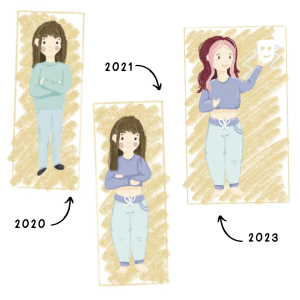Welcome to The Nurture Programme®
Trauma Informed & Trauma Responsive therapeutic coaching programmes for families with Neurodivergent profiles

What is Included?
- Guest Speakers
- Guided LIVE sessions
- Interactive Breakout Sessions
- Recorded Sessions for catch up and playback.
- Four Complimentary Therapeutic Coaching Sessions

What is Included?
- On Demand Sessions
- Therapeutic Coaching Session One: Friday 06 June 2026
- Therapeutic Coaching Session Two: Friday 13th June 2026
- Therapeutic Coaching Session Three: Friday 20th June 2026
- Therapeutic Coaching Session Four: Friday 27th June 2026
I founded The Nurture Programme during the 2020 pandemic. There was a huge loss of support and connection for families like mine and The Nurture Programme aimed to fill that void. We did so by creating a regular and consistent neuro-affirming presence on social media, connecting with vulnerable families and sharing insights into our lived experience in the hope we could help them move from CRISIS to CALM within their households.

The Nook by Nurture - Monthly Membership

The Nook by Nurture is a dedicated space provided by The Nurture Programme to grow connection and hold space for families to enable growth. As Neurodivergent people we are often sidelined into obscurity due to the spaces created by individuals who live and thrive in a neuronormative society, making socialising, connection, building friendships and learning inaccessible.
Our online membership doesn’t just create a space for you to learn from, but to feel safety within your very own community whilst shutting the door on the shame and judgment we often experience.
Jodie leads this space through Authenticity, Autonomy and Acceptance. No one is EVER left behind. With webinars, Connection Sessions, A dedicated Facebook Group and Messenger Chat we are always here for you.
This space is yours and you are always welcome.
About Calm, Connection & Co-Regulation®

The Nurture Programme® has a unique focus, our Calm, Connection & Co-Regulation (CCC®️) model has been developed over the last year throughout our trainings and is now embedded through everything we offer.
Our programmes are designed to inform and nurture your learning with a strong emphasis on neuro-affirming and neuro-inclusive practice. Calm, Connection & Co-Regulation®️ is at the heart of what The Nurture Programme® aspires to achieve.
We believe wholeheartedly in lived experience and centreing those neurodivergent voices in everything we create. The Nurture Programme® aims to challenge the textbook theories, abandon the medical model and help you overcome “Textbook Syndrome”. By inviting you into our diverse and accepting community, we offer our experiences through strength and connection, and aim to provide a safe, inclusive space for ALL which may sometimes feel challenging, but never with judgment and always with grace.

Calm, Connection & Co-Regulation is essential for all families especially those with a neurodivergence.
MEET THE FOUNDER
Jodie Isitt, Founder
I’m Jodie, and I am Autistic. Nope, scrap that! I’m Autistic and absolutely 100% proud and privileged to be able to share my experiences with you in the hope that we can bring about change, and balance, and inspire NURTURE throughout not just the community, but adventurously the universe!

I was only diagnosed on 2020 over 8 years after my first child was diagnosed (three Autistic children altogether) and whilst I have been predominantly using a Nurturing parenting style, it never fully translated to myself, therefore I was frequently in a state of shutdown and burnout and unable to tend to my own needs. Impossible really when I wasn’t aware there were any, let alone understand them to be able to advocate for them to be met. I made the mistake of believing I knew everything about autism, until I was diagnosed myself. I now understand and fully support that there simply are NO experts. Not one single expert on Autistic experience or other neurodivergence, because no one person can simply know and understand every single person on the planet. Our experiences are individual and unique and absolutely beautiful and learning about neurodivergence is one of the most inspiring, fulfilling things I have ever done in my life. I want to learn more, every single day. Because not only does it help me understand myself and my family, it has also helped me to become a much better person, less afraid, less misunderstood about difference and absolutely more accepting. It is a powerful thing, knowledge. And knowledge is absolutely the power we need to be able to thrive in a world with outdated beliefs of our “disordered selves”. We can use our knowledge in the most inspiring of ways, to create change, to reframe thinking and understanding and to nurture people to make that step from thinking we need to be modified, to KNOWING that we are 100% exactly as we were meant to be. And becoming that stepping stone, building that bridge and facilitating the movement from “US” to “THEM” is exciting.
We do NOT need to be modified, we do not need to change. What we need is a more inclusive, understanding and accepting society that we are appreciated in as an equal contributor.
Eloise Elford, The Nook Manager
The Nurture Programme® Testimonials









